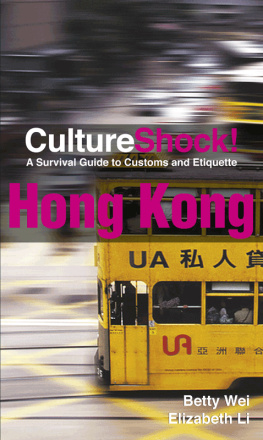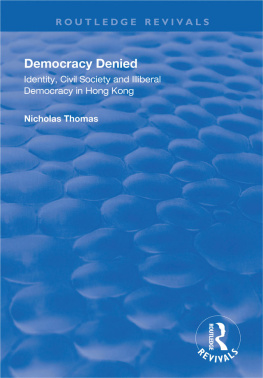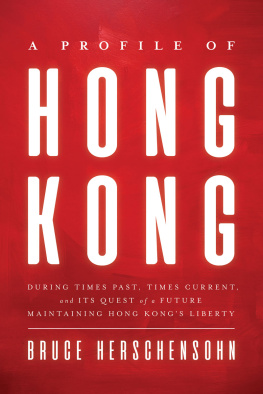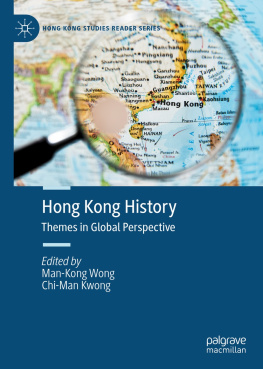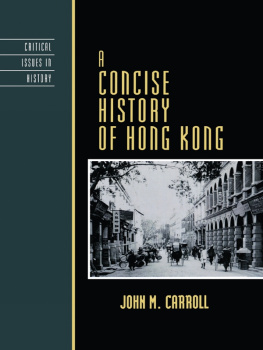First published 2000 by Ashgate Publishing
Reissued 2018 by Routledge
2 Park Square, Milton Park, Abingdon, Oxon OXl 4 4RN
711 Third Avenue, New York, NY 10017, USA
Routledge is an imprint of the Taylor & Francis Group, an informa business
Copyright Joe Thomas 2000
All rights reserved. No part of this book may be reprinted or reproduced or utilised in any form or by any electronic, mechanical, or other means, now known or hereafter invented, including photocopying and recording, or in any information storage or retrieval system, without permission in writing from the publishers.
Notice:
Product or corporate names may be trademarks or registered trademarks, and are used only for identification and explanation without intent to infringe.
Publishers Note
The publisher has gone to great lengths to ensure the quality of this reprint but points out that some imperfections in the original copies may be apparent.
Disclaimer
The publisher has made every effort to trace copyright holders and welcomes correspondence from those they have been unable to contact
A Libraty of Congress record exists under LC control number: 99075540
ISBN 13: 978-1-138-70729-0 (hbk)
ISBN 13: 978-1-315-20148-1 (ebk)
The present study is an ethnographic inquiry into the socio-cultural dynamics of the Vietnamese asylum seeker detention centers in Hong Kong during the period of 1988-1995. This book essentially deals with the British asylum policy towards Vietnamese refugees and its outcome in Hong Kong; the British policy of a prolonged administrative detention (detention without a legal procedure) of a large number of children, women and men. The refugee administrators managed to solve the Vietnamese boat people crisis in Hong Kong through a series of refugee policies. However, very little is known to the world about the nature of these policies and their consequences. This book, based on the authors first-hand field experience as a camp worker in Hong Kong, argues that the administrators managed to solve the crisis by perpetuating horrendous human rights violations and subsequent ethnocide of the asylum seekers trapped in the detention centers.
When the asylum seekers are betrayed by the refugee protection regimes, what do the asylum seekers do; how do they cope with such a betrayal; what are the consequences of such a betrayal; and how such a phenomena was allowed to happen, are some of the themes of this book. Ethnocide is not an accidental or unavoidable consequence of cultural contact between two cultural groups with unequal power. In Hong Kong such a phenomenon has occurred through a carefully planned refugee policy and programme, executed by an efficient bureaucracy with the blessings of the global refugee protection regime - the United Nations High Commissioner for Refugees.
It is a pleasure to acknowledge the indebtedness to several individuals for helping me to write this book. I would like to thank all of them. Without their care and consideration this work would not have been possible. However only I am responsible for the views expressed in, and any shortcomings of, this book.
Dr. Michael Lanphier, at the Refugee Study Center, York University, Toronto was kind enough to accept me at his center with valuable suggestions. He also patiently read the first draft of this book and made substantial suggestions and criticisms. Dr. Harrell-Bond, Director of the Refugee studies programme at the University of Oxford helped me immensely in developing a theoretical framework for this study.
With great pleasure, I would like to acknowledge the support offered by my colleagues, Dede Farrell, Nigel Priece, Senoo Rawat and Ravi Lulla. Several of my friends in Hong Kong detention centers helped me in many ways. Mr. Thu, Mr. Big Hung, and Ms. Van helped me in data collection.
I would also like to acknowledge the encouragement and guidance I have received from Dr. K.S. Nair, Dr. S.Parasuram and Mr. G.AA. Britto.
Thanks to the South China Morning Post Publishers Ltd for granting me permission to reprint the article, Why I weep for Hong Kong, SCMP, 27-09-1992.
Finally, Mridula, my companion and friend for encouraging me to complete this work.
Joe Thomas


